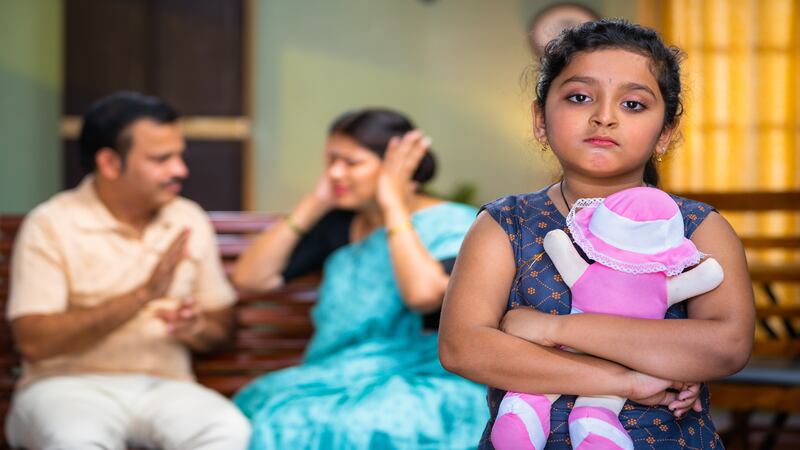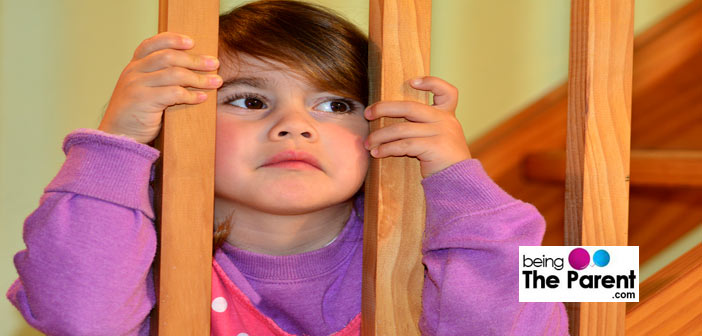
All couples have arguments, misunderstandings and small fights over trivial matters. Practically, it is impossible to agree with everything that your partner says or does. Therefore, arguments will always happen. These cannot be stopped completely no matter how hard you try. After all, we are human and argument is a part of growing and nurturing a healthy relationship between you and your partner. However, never fight in front of your children. When two individuals who have a mind of their own, stay together and spend their lives with each other, they cannot always think in the same direction, so they will also have difference of opinion also. However, these arguments are not just arguments when you have little ears and minds that are acutely sensitive to even minor conflicts. What we as parents fail to understand is that you fight and lay out your differences which are later sorted out. Now, though you end up sorting these issues and are much again in love, the child does not see it and even does not understand it, as well.
- How Does Fighting In Front Of Children Affects Them?
- The Effects Of Destructive Marital Conflicts On Children
- Signs Your Arguments Are Affecting Your Child
- What Should Parents Do To Avoid Harmful Effects Of Domestic Conflicts On Children?
How Does Fighting In Front Of Children Affects Them?
Some researches and studies have concluded that blood pressure of infants rises when they hear their parents shouting or arguing with each other, even though they are unable to comprehend anything much. The tone of voice, the expressions, the movement of the eyes, etc., all makes even a 6 month old feel insecure when his parents are fighting. Young children may not understand the words, but they register the conflict and try to figure out what it means. The children, who see their parents fighting regularly over petty things or due to too much work pressure, have a negative impact on their development – both psychologically and mentally. Child psychologists have always put emphasis on the fact that the parents should not have their arguments in front of their young children.
The Effects Of Destructive Marital Conflicts On Children
Destructive tactics often find place in arguments, and harm children psychologically. Verbal aggression like insults, threats, name calling or physical aggression like pushing, hitting, breaking stuff etc., makes children distraught and anxious. They also begin to feel helpless and hopeless, and some may develop anger, aggression and other behavioral issues. Some parents adopt silent tactics like avoiding or ignoring each other in course or after an argument. Such destructive conflicts can also render children sleepless, worried, and physically and mentally unwell. Such children tend to have problems in developing relationships with their peers, often making them distant and detached. Their concentration levels may drop and academically they might face problems. No matter what the age of a kid is, a child always remains very sensitive to his or her parents’ marital discords. These conflicts can bring about stress in children. Adulthood for such children is filled with physical, emotional and social problems.
Signs Your Arguments Are Affecting Your Child
Of course, we all know how immature the minds of young children are and what they are capable of understanding and what not. More often than not, children who see their parents arguing or shouting resort to at least one of the following:
- Children start crying, seeing their parents fighting
- They remain completely quiet, failing to understand how to react
- Children develop a feeling of insecurity
- They feel scared of the loud dialogues that parents exchange
- Children tend to get aggressive and loud in their temperament
- They stop enjoying their daily routine, with their friends and in school
- At times, they hold themselves responsible for the fights
- The impact on their mind and their personality is intense and long lasting
- Sometimes our negative behavior forms a part of their personality as well
- They feel emotionally threatened and can show signs of depression, anxiety, aggression, hostility

What Should Parents Do To Avoid Harmful Effects Of Domestic Conflicts On Children?
A research indicates that it is not the number of times parents fight, but the extent that parents fight that affects the children. Healthy and respectful arguments are bound to happen. This, in fact good for your child. But, if parents end up quarreling nastily, calling names, dragging other family members, quoting past incidents, etc., and even if make up in silent solitude, the child remembers only the fight, the nasty words and bad mouthing. So don’t you feel it is better that when our children don’t see us sorting out things, then they don’t see us fighting also. Well, it is essential for the healthy growth of our children. The below steps can help:
- Try not to argue in front of the children
- If that is always not possible, then we should maintain our dignity and respect for each other
- Never speak badly and rudely in front of your child as he will learn all this from you only
- Don’t make them a part of your argument; never involve them in any of your differences as they might feel stuck on whose side to take and what to speak to the other parent
- Pay attention to your child and his well-being, keeping your ego at bay
- Never shout at each other while fighting
- Never insult your spouse in front of your child
- If you happen to fight in front of your child, make sure you also patch up in front of him. This will reassure your child that you have sorted the problems and are one again

We know it seems like forming rules for fighting as well, which is practically impossible when you are upset about anything. If you think that you have to carefully plan your fight now that you have children, then yes; it is somewhat like that. But you have an alternative, instead of planning how to fight, it is better you plan your arguments when the child is not around. This will not put pressure on his young mind and you will also not have to spend time thinking how you will fight with your partner when he or she comes back home. Nothing is more important to us than our children and we all want them to grow in the healthiest environment so why not start it from home only.
